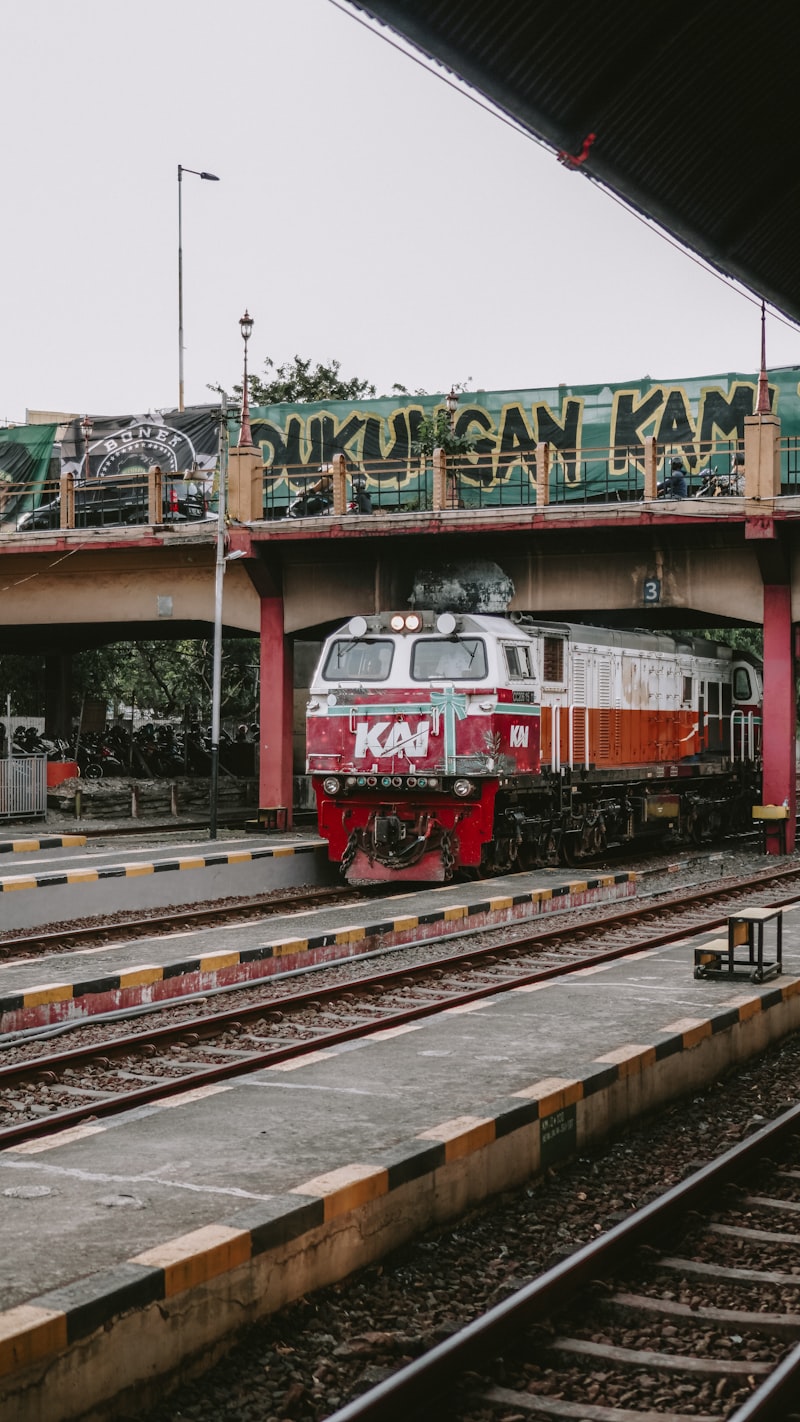Rail ticket office closures

Have you ever stood in line at a rail ticket office, waiting anxiously to purchase your train ticket? It’s a scene that many of us are familiar with, but times are changing. With the advent of technology and the rise of digital platforms, rail ticket office closures have become a reality. While some may view this as a loss, it is essential to embrace change and explore the benefits that come with it.
In today’s fast-paced world, convenience is key. Online ticketing systems offer an unparalleled level of convenience, allowing travelers to book their tickets anytime, anywhere. No more rushing to catch the last train or standing in long queues. With a few clicks, you can secure your seat and receive the ticket directly on your smartphone. It’s like having a personal travel agent in your pocket!
But what about those who prefer face-to-face interactions? Don’t worry; customer service hasn’t disappeared. Rail companies have adapted by introducing customer support centers and helplines staffed by knowledgeable professionals. Whether you have questions about fares, schedules, or need assistance with a booking, help is just a phone call away. These dedicated teams ensure that you receive the same level of personalized assistance as you would at a traditional ticket office.
Moreover, let’s not forget the environmental impact. Rail ticket office closures contribute to sustainability efforts by reducing paper waste. Digital tickets eliminate the need for printing, reducing our carbon footprint. By embracing this change, we play a small yet significant role in preserving our planet for future generations.
Of course, change can be challenging, especially for those accustomed to the traditional ticketing process. But just imagine the possibilities that lie ahead. Embracing digitalization opens doors to innovation. With advancements like contactless payments and real-time updates on delays and cancellations, the future of rail travel is becoming increasingly interconnected and efficient.
Rail ticket office closures signify an evolution in the way we travel. By embracing digital solutions, we gain convenience, personalized support, and contribute to a greener future. So, next time you plan a journey, hop on board the digital train and experience the wonders that await you.
Massive Wave of Rail Ticket Office Closures Leaves Commuters in Limbo
Are you tired of the daily grind, being stuck in traffic jams, and dealing with exorbitant parking fees? Well, I have news that might leave you feeling stranded. A massive wave of rail ticket office closures is sweeping across the country, leaving commuters in limbo.

Picture this: you arrive at your local train station, eager to purchase your ticket from a friendly face behind the counter, only to find the windows shuttered, the desks empty. Instead of a bustling hub of activity, you are greeted by a desolate space, devoid of human interaction. The convenience and personal touch you once relied on have vanished, replaced by uncertainty and confusion.
So, what led to this dramatic shift? One word: digitalization. In an era dominated by technology, where smartphones and apps reign supreme, traditional ticket offices have fallen victim to the relentless march of progress. As online platforms and mobile applications offer the ease of purchasing tickets with just a few taps, the need for physical ticket offices has diminished significantly.
While this transition may seem like a logical step forward, it poses several challenges for commuters. For starters, not everyone is tech-savvy or comfortable navigating complex digital interfaces. The closure of ticket offices leaves these individuals without alternative means to purchase their tickets, effectively cutting off their access to public transportation.

Furthermore, ticket offices often served as a reliable source of information, offering guidance and assistance to passengers. Whether it was providing travel advice, resolving issues, or simply lending a sympathetic ear, the human element played a crucial role in enhancing the commuting experience. With the closures, commuters are left adrift, struggling to find answers to their questions and support for their concerns.
The impact of these closures extends beyond mere inconvenience. It raises important questions about inclusivity and accessibility. Are we inadvertently excluding certain segments of society by embracing a digital-first approach? Are we neglecting the needs of the elderly, the technologically challenged, and those with limited resources? These are questions that demand our attention as we navigate this new landscape of rail travel.
The massive wave of rail ticket office closures has left commuters in a state of uncertainty. While digitalization offers convenience for some, it also poses challenges for others. The closure of ticket offices raises concerns about inclusivity and accessibility in an increasingly technology-driven world. As we move forward, it is essential to find a balance that caters to the needs of all commuters, ensuring that no one is left stranded or without support on their journey.
Farewell to the Counter: How Digitalization Is Driving Rail Ticket Office Closures
The traditional way of purchasing rail tickets in person at the ticket counter is gradually becoming a thing of the past. The advent of digitalization has revolutionized the railway industry, leading to the closure of many physical ticket offices. This article explores how digitalization is reshaping the way we buy train tickets and bids farewell to the counter.
Gone are the days when we had to queue up at the ticket office, patiently waiting for our turn. With just a few taps on our smartphones or clicks on our computers, we can now effortlessly book and manage our train travel. The rise of online ticketing platforms and mobile applications has made the process faster, more convenient, and accessible to everyone.
Digitalization has not only simplified ticket purchasing but also brought a plethora of benefits. By embracing this digital shift, passengers can easily compare fares, check schedules, and select preferred seats, all from the comfort of their homes. No longer bound by operating hours, travelers have the freedom to make reservations at any time that suits them best. It’s like having a virtual ticket office at their fingertips, available 24/7.
Furthermore, digital tickets have replaced the need for paper ones. E-tickets can be stored on our smartphones or emailed directly to us, eliminating the hassle of carrying physical tickets. This not only saves time but also contributes to a greener environment by reducing paper waste.
The closure of physical ticket offices may seem bittersweet for some, as they hold nostalgic value and provide a human touch. However, these closures reflect the changing landscape of the railway industry, driven by the increasing demand for digital services. As technology continues to advance, companies must adapt to stay relevant and meet customer expectations.
Digitalization has transformed the way we purchase train tickets, rendering traditional ticket counters obsolete. The convenience, flexibility, and environmental benefits offered by digital platforms have prompted the closure of physical ticket offices. Embracing this digital revolution allows passengers to bid farewell to the counter and enjoy a seamless, efficient, and modern ticketing experience.
Community Outcry as Historic Rail Ticket Offices Face Closure
Introduction:
Imagine stepping into a historic train station, the scent of nostalgia mingling with the bustling sounds of passengers and the rhythmic clatter of trains. These iconic hubs have long been an integral part of our cultural heritage, connecting generations of travelers to their destinations. However, in recent times, a wave of concern has swept through communities across the nation as historic rail ticket offices face the imminent threat of closure.
The End of an Era:
In an era dominated by digital advancements, the fate of these cherished ticket offices hangs precariously in the balance. With the rise of online booking platforms and automated systems, the need for physical ticket offices has diminished significantly. As a result, railway companies are considering the closure of these time-honored establishments, leaving many communities devastated.
A Loss of Identity:
These ticket offices hold more than just practicality; they embody the rich history and unique character of their surroundings. From their distinctive architecture to the knowledgeable staff who possess a wealth of regional knowledge, they serve as gateways to the past. Closing these offices would not only strip away a valuable piece of history but also sever the connection between communities and their heritage.
Community Impact:
The closure of these ticket offices resonates deeply within local communities. Beyond providing tickets, these offices act as information hubs, offering personalized advice, and fostering a sense of belonging. They become meeting places where individuals share stories, exchange recommendations, and forge new connections. Losing such a gathering point can leave a void in the community fabric, eroding the social cohesion that these offices so often nurture.
Preserving Our Heritage:
As the debate on the future of these ticket offices rages on, passionate advocates argue for their preservation. They highlight the significance of preserving our historical landmarks as a testament to our roots and as a means of educating future generations. While adapting to technological advancements is essential, finding a balance that safeguards our heritage is equally important.
Conclusion:
Navigating the Future: Rail Operators’ Controversial Decision to Shut Ticket Offices
Are you ready to hop aboard the train of controversy? Well, buckle up and get ready to explore the fascinating world of rail operators and their perplexing choice to shut down ticket offices. In an era where automation and digitalization are reigning supreme, this decision has sparked heated debates, leaving passengers and industry experts divided.
Picture this: you arrive at a bustling train station, only to find that the once-familiar ticket office has been replaced by sleek, self-service machines. Gone are the days of friendly faces behind the counters, guiding you through the ticket purchasing process. Instead, you’re faced with a screen, a keypad, and perhaps a wave of frustration if you’re not tech-savvy.
The rationale behind these closures is simple, yet controversial. Rail operators argue that shutting down ticket offices is a cost-saving measure in an increasingly digitized world. With the rise of online ticket sales and smartphone apps, traditional ticket offices are deemed redundant and costly to maintain. By transitioning to automated systems, rail operators can reduce overhead expenses and reallocate resources to improve other aspects of the passenger experience.
However, detractors of this decision raise valid concerns. What about those who lack access to technology or struggle with its complexities? Elderly passengers, tourists, and individuals with limited digital literacy may find themselves stranded, unable to navigate the new ticketing landscape. Moreover, some argue that removing ticket offices diminishes the human touch and personalized assistance that many passengers value.
Rail operators must strike a delicate balance between progress and inclusivity. While embracing technological advancements is essential, it’s imperative not to leave certain groups behind. Implementing user-friendly interfaces, providing comprehensive training, and offering alternative channels for ticket purchase can help bridge the gap between convenience and accessibility.
The controversial decision of rail operators to shut ticket offices is transforming the way we interact with train stations. As the future hurtles toward us, we must consider the impact on different segments of society. Let us navigate this uncharted territory with empathy and foresight, ensuring that progress doesn’t come at the expense of inclusivity.





